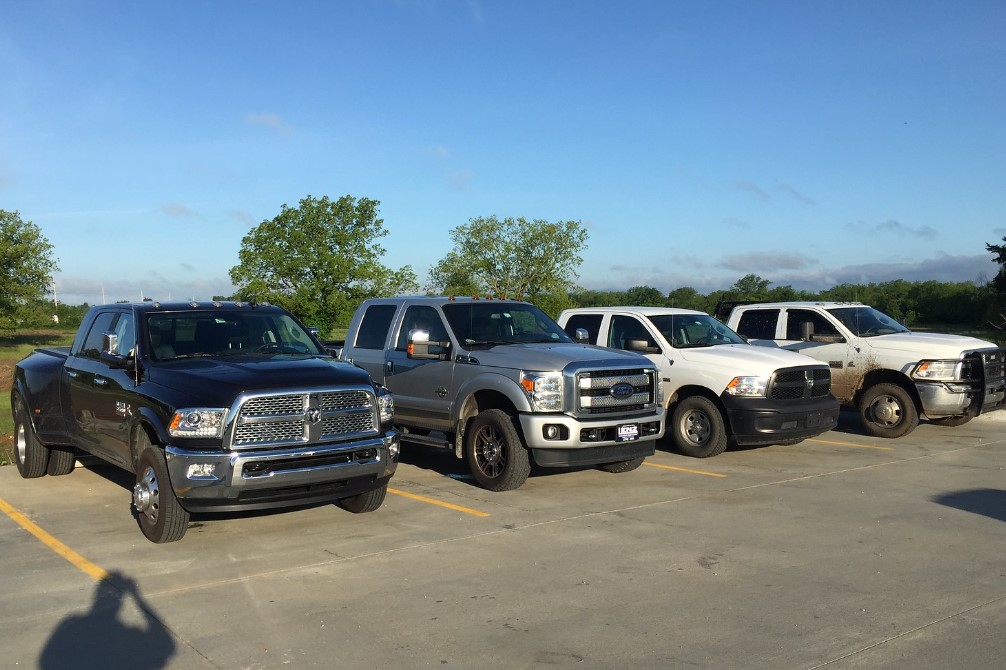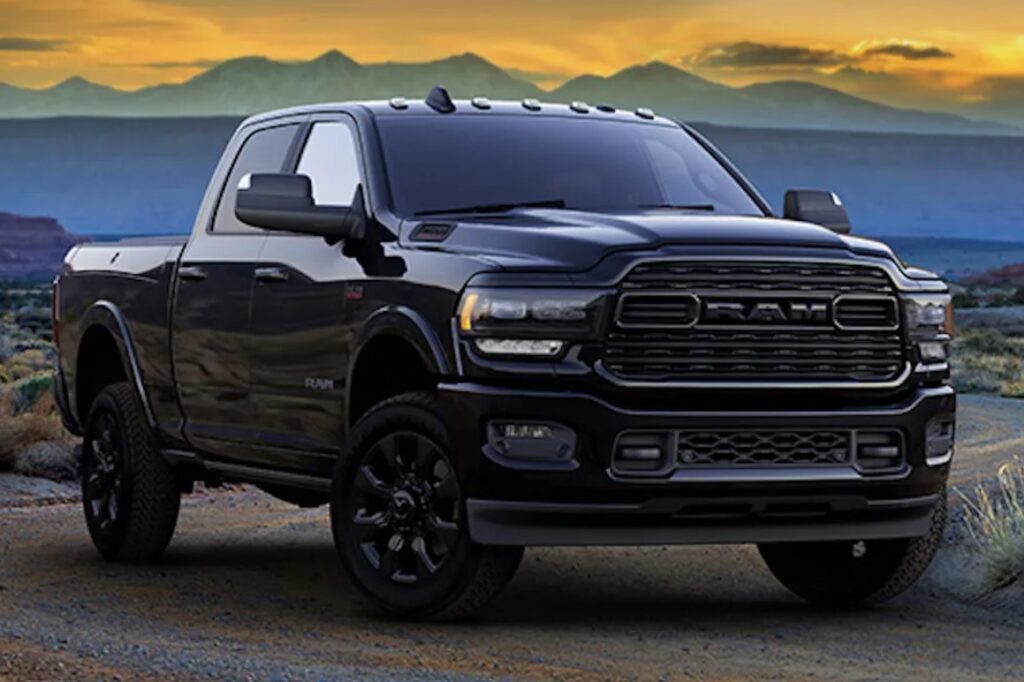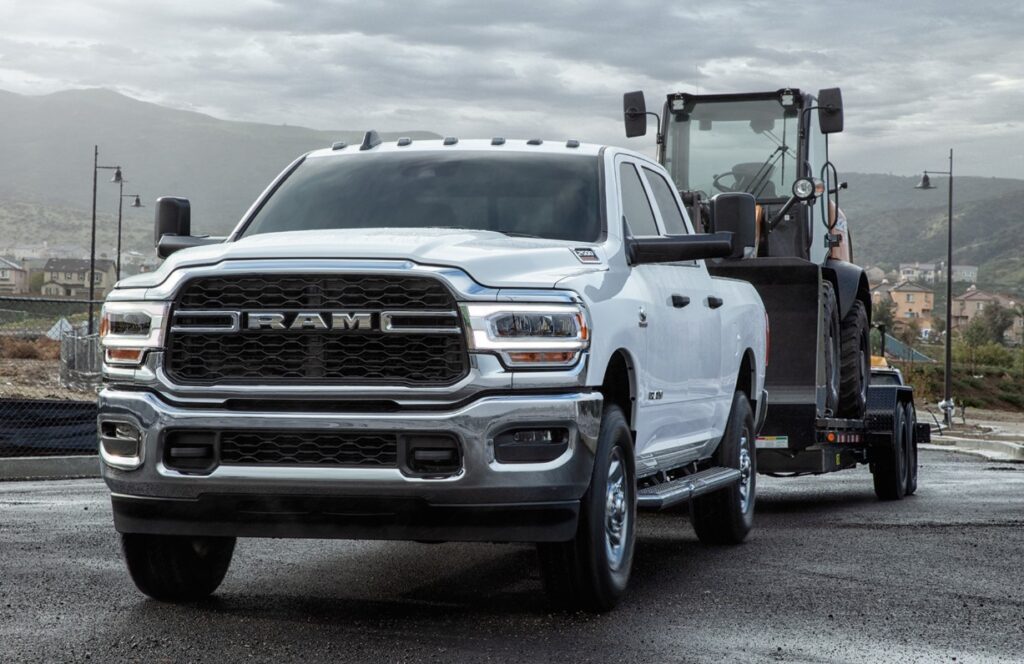Should I Buy A Diesel Truck As A Daily Driver? Explained
Are you looking for Should I Buy A Diesel Truck As A Daily Driver? This question resonates with many who are considering a new vehicle. Diesel trucks offer distinct advantages and disadvantages compared to their gasoline counterparts. In this comprehensive guide, we will delve into various aspects of owning a diesel truck, helping you make an informed decision.
Key Takeaways
- Economic Factors: Consider fuel efficiency and long-term costs.
- Environmental Impact: Understand the emissions and eco-friendliness.
- Performance: Evaluate the power and towing capacity.
- Maintenance: Acknowledge the maintenance needs and costs.
- Resale Value: Consider the truck’s value over time.
- Lifestyle Fit: Assess if a diesel truck suits your daily needs.
Should I Buy A Diesel Truck As A Daily Driver?
Deciding to buy a diesel truck as a daily driver largely depends on your specific needs and driving habits. If you frequently tow heavy loads, cover long distances, or prefer vehicles with high torque and fuel efficiency, a diesel truck could be a great choice.

However, if your daily driving involves mostly city commutes with short trips, or you’re concerned about higher upfront costs and maintenance expenses, a diesel truck might not be the most economical or practical option. Consider your requirements, driving patterns, and budget before making this decision.
Advantages of Diesel Trucks
Economic Benefits
Diesel engines are known for their fuel efficiency and longevity. They often offer better mileage compared to gasoline engines, especially when towing or under heavy loads.
This translates to savings in the long run, despite the initial higher cost and typically higher diesel fuel prices. However, it’s crucial to calculate the breakeven point to see if the savings justify the initial investment.
Performance and Capability
Diesel trucks boast superior torque, making them ideal for towing and hauling heavy loads. This high torque also contributes to a more responsive driving experience, especially under strain. If your daily driving includes towing or transporting heavy items, a diesel truck might be the right choice.
Disadvantages of Diesel Trucks
Maintenance and Repair Costs
While diesel engines are durable, their maintenance and repair can be more costly than gasoline engines. This is due to the complexity of diesel engines and the higher cost of parts. Regular maintenance is crucial to prevent expensive repairs down the line.
Environmental Considerations
Modern diesel trucks have come a long way in reducing emissions, but they still lag behind gasoline vehicles in terms of environmental friendliness. The production of nitrogen oxides and particulates is a significant concern, although advancements like Diesel Exhaust Fluid (DEF) have helped mitigate these issues.
Fuel Economy and Long-Term Costs

Assessing Fuel Costs
When considering a diesel truck as a daily driver, it’s important to analyze fuel costs. Diesel fuel often has a higher price per gallon, but the increased fuel efficiency of diesel engines can offset this. Consider your daily commute and driving habits to determine if the fuel cost savings will be beneficial for you.
Long-Term Ownership Costs
Apart from fuel, consider the long-term costs of owning a diesel truck. This includes maintenance, insurance, and depreciation. Diesel trucks generally hold their value better than gasoline trucks, which can be a plus when considering resale value.
Diesel Trucks in Urban vs. Rural Settings
City Driving Considerations
In urban settings, diesel trucks may not be as advantageous. The benefits of diesel engines are more pronounced in highway driving and when towing, which might not align with city driving patterns. Additionally, parking and maneuvering large trucks in urban areas can be challenging.
Rural and Highway Driving
For those living in rural areas or who have a highway-heavy commute, diesel trucks can be a great asset. Their efficiency and performance in long-distance and high-load scenarios make them a practical choice for rural living.
Lifestyle and Daily Use
Assessing Your Daily Needs
Consider how a diesel truck fits into your daily life. If your daily driving involves towing, long-distance commutes, or carrying heavy loads, a diesel truck’s strengths align well with your needs. However, for primarily city driving or light usage, the benefits might not be as pronounced.
Comfort and Practicality
Modern diesel trucks offer a level of comfort and luxury that rivals many passenger cars. However, assess the practicality of a large truck in your daily life, considering factors like parking, fuel costs, and maneuverability.
Is It Worth Owning A Diesel Truck?
Owning a diesel truck can be worth it, especially for those who value high torque, fuel efficiency, and durability. Diesel trucks are known for their superior towing capabilities, making them ideal for hauling heavy loads.

They also offer better fuel efficiency on highways and longer engine life compared to gasoline trucks. However, the worthiness of a diesel truck also depends on individual needs and usage patterns.
They tend to be more expensive upfront and have higher maintenance costs, making them less economical for those who don’t require heavy towing or long-distance driving.
For urban commuters or light-usage drivers, the benefits might not outweigh the costs. Additionally, the environmental impact of diesel engines, though improved in recent models, is still a consideration.
Are Short Trips Bad For Diesel Engines?
Short trips can be detrimental to diesel engines, primarily because they prevent the engine from reaching its optimal operating temperature. Diesel engines are designed to run most efficiently when fully warmed up.

Frequent short trips can lead to incomplete combustion, which may cause soot buildup in the engine and exhaust system. This buildup can clog the Diesel Particulate Filter (DPF), leading to reduced performance and potentially costly repairs.
Additionally, short trips can prevent the proper regeneration of the DPF, a process that requires the engine to be at a higher operating temperature for a certain period. Therefore, for those who primarily make short trips, a diesel engine might not be the most suitable choice.
Does It Make Sense To Get A Diesel Truck If You Don’t Tow?
Choosing a diesel truck without the need for towing depends on several factors. While diesel trucks are renowned for their towing capacity and torque, these advantages may be underutilized if you don’t tow regularly.
However, there are other benefits to consider, such as better fuel efficiency on highways and potentially longer vehicle lifespans. Diesel engines are also praised for their performance under heavy loads, which can be beneficial for transporting large items, even if not towing.
On the downside, diesel trucks usually come with higher purchase prices and maintenance costs, which might not be justified for those who don’t engage in activities that take advantage of the diesel engine’s strengths.
Ultimately, it makes sense to evaluate your typical vehicle usage and weigh the cost versus benefits of owning a diesel truck in your specific scenario.
Conclusion
Deciding whether to buy a diesel truck as a daily driver involves weighing the economic, environmental, and practical aspects against your personal needs and lifestyle.
Diesel trucks offer excellent fuel efficiency, longevity, and performance, especially under heavy loads and long-distance driving.
However, higher maintenance costs, environmental concerns, and practicality in urban settings are potential drawbacks. Ultimately, the decision should align with your daily driving needs, budget, and environmental considerations.
People Also Ask
Are there any tax incentives or benefits for owning a diesel truck?
In some regions, there may be tax incentives for owning diesel vehicles, especially those used for business purposes. However, these incentives vary by location and the specific use of the truck. It’s advisable to consult with a local tax professional or government agency for the most accurate information.
What should I consider when buying a used diesel truck?
When buying a used diesel truck, consider its maintenance history, overall condition, mileage, and any modifications made to the engine or exhaust system. It’s also important to check for common diesel-specific issues like the condition of the turbocharger and fuel injection system.
Do diesel trucks hold their value better than gasoline trucks?
Generally, diesel trucks tend to have better resale value compared to their gasoline counterparts. This is due to their durability, longevity, and the perception of being more capable, especially for towing and heavy-duty work.
Is it true that diesel trucks last longer than gasoline trucks?
Diesel engines are known for their durability and typically have a longer lifespan than gasoline engines. This is partly due to their robust construction needed to withstand higher compression ratios. However, the longevity of any vehicle depends on regular maintenance and driving habits.

Welcome to the exhilarating world of Matt Rex, a professional car racer turned renowned vehicle enthusiast. Immerse yourself in his captivating blog as he shares heart-pounding adventures, expert reviews, and valuable insights on cars, trucks, jets, and more. Fuel your passion for speed and discover the beauty of vehicles through Matt’s engaging stories and meticulous expertise. Join the ever-growing community of enthusiasts who find inspiration and expert advice in Matt Rex’s blog—a digital hub where the thrill of speed meets the pursuit of knowledge.







![My Car Started Smoking And Then Died [Causes & How Fix It?]](https://www.turbochaos.com/wp-content/uploads/2023/06/My-Car-Started-Smoking-And-Then-Died-768x512.jpg)